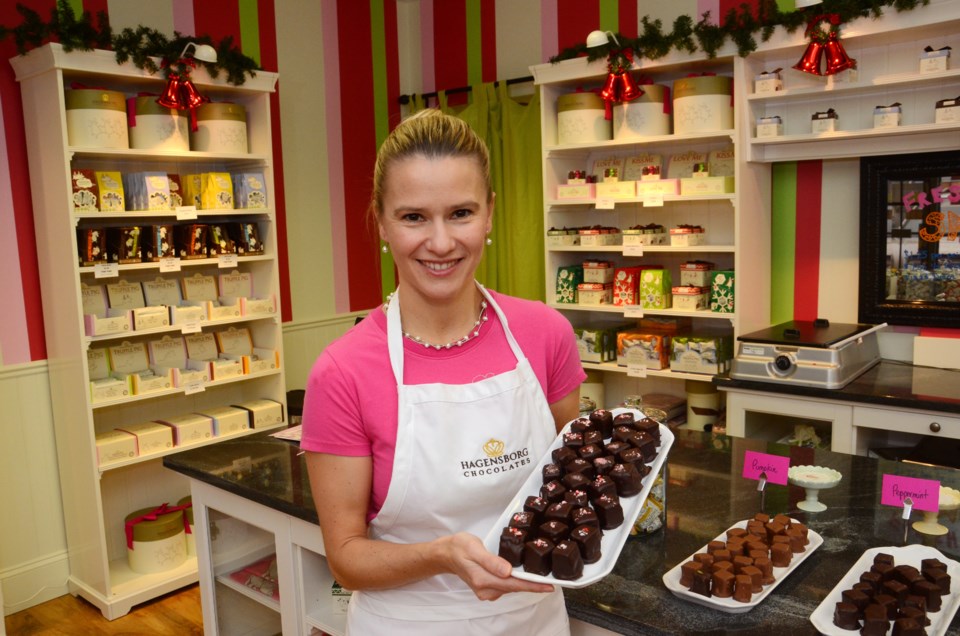The owner of a Burnaby-based chocolate factory has decided to take her business in a different direction after finding out her supplier was linked to child labour.
Last Christmas, Shelley Wallace of Hagensborg Chocolates decided to do some research on her supply chain. She soon discovered the company where she was getting her cocoa from had cacao farms in Ghana and the Ivory Coast.
“There’s two million (children) enslaved currently in cocoa production there. It’s horrible,” she says. “Because I have three children myself, I started digging more into the internet and learning more about what was involved, and it was all very clear there was a big, big problem.”
Wallace, who did not want to name the supplier, immediately dumped the company and went with a new supply chain – Mesocacao and Cacao Bisiesto – in Nicaragua.
Cacao Bisiesto collects the beans from cacao farmers, and unlike her previous supplier, pays them up to 30 per cent higher than world market cocoa prices.
“It offers them a chance to buy more trees if they want to invest in the farming; it gives them an opportunity to have a better livelihood for their families,” says Wallace.
The beans are then fermented, dried and sold to Mesocacao.
“I started looking for a resource that I could personally go (to) and make sure there was no slavery,” she says. “I figured the best way is that I go see the farms.”
Wallace travelled to Nicaragua for a week in January and did exactly that.
“I thought I would see big plantations with cacao farms. It wasn’t that at all. It was rolling hills with cacao growing wild on them and little shanty homes that the farmers lived in,” she says, noting the average farmer lives on about $2,000 a year. “You would be considered middle-class if you owned a motorcycle. You’re lucky if you own a horse to get into town.”
While Wallace was in Central America, she helped her supply chain buy a couple of motorcycles.
She recalls one cacao farmer getting excited about the changes.
“Our supply chain also helps our farmers learn to prune their trees and plant new ones. Once you prune a tree, it produces better. He was willing to learn and make some changes to increase his yield, which increased five times,” she tells the NOW.
Wallace admits she felt overwhelmed when she came home.
“I wanted to save Nicaragua and educate people. But I realized that my job is not to save Nicaragua. My job is to sell more chocolate to people with a conscience and help Nicaragua save itself,” she says.
This month, Wallace will be offering equity shares in her company through a platform called frontfundr.com.
She hopes through a $250 (or more) contribution, the public can help her raise $550,000 so she can expand her product line to include 10 flavours of chocolate bars. The hope is to sell them in stores across Canada and to give Canadians an alternative to supporting slavery.
“No children are harmed, and our farmers are empowered to increase their crops,” says Wallace.



